The use of renewable energy is becoming increasingly popular as people seek to reduce their carbon footprint and save money on energy costs. One of the main challenges of using solar energy is how to store it efficiently for use when needed. This is where solar energy storage battery packs come in, and the type of battery used can make a significant difference in the efficiency and sustainability of the system. In this article, we will explore the benefits of using Keshee 3.2V 163Ah LiFePO4 Deep Cycle Cells for DIY solar energy storage battery packs.
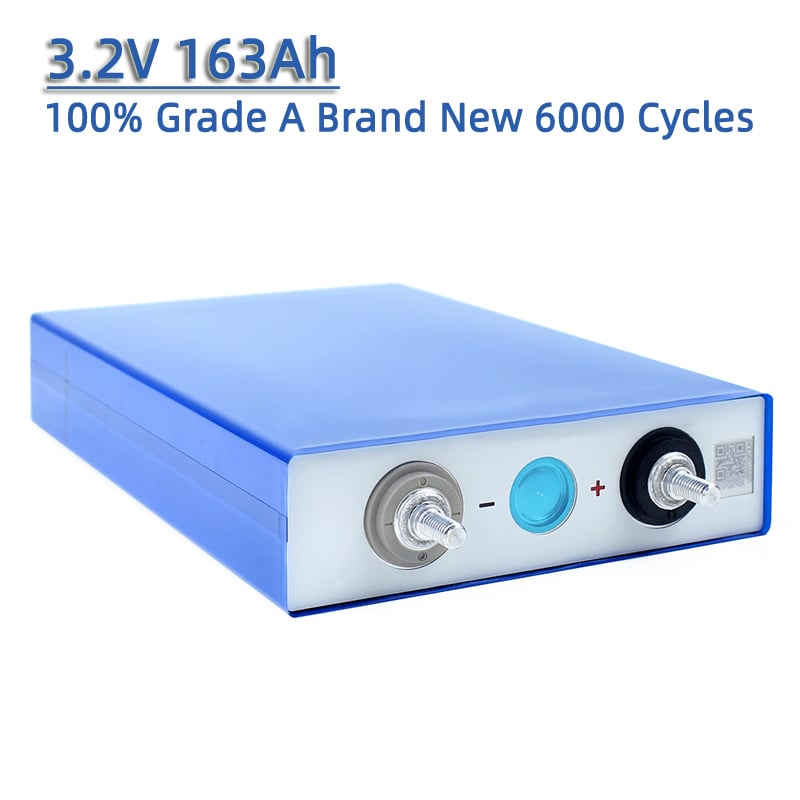 |
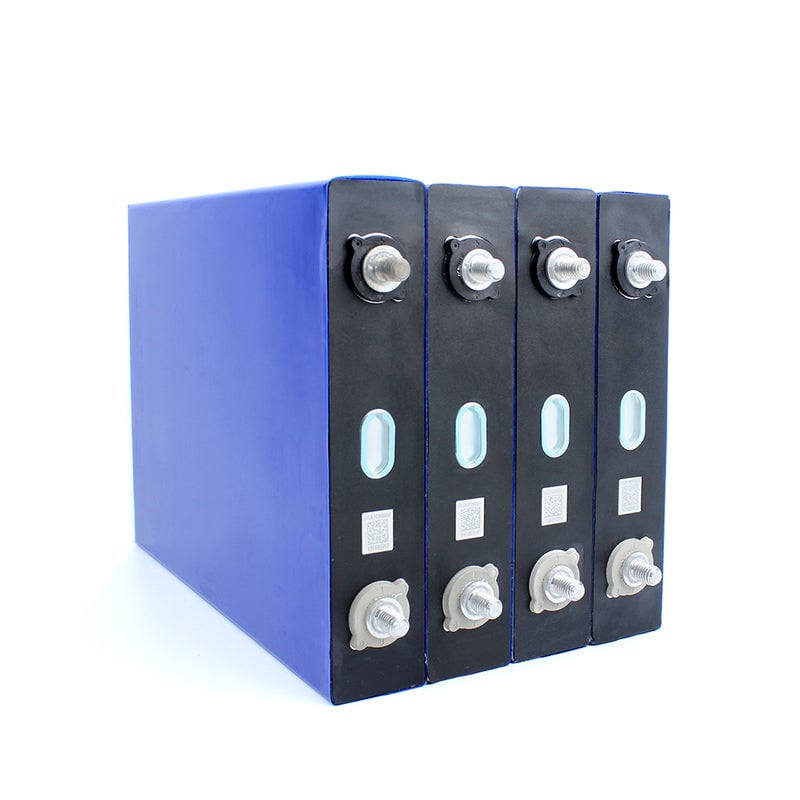 |
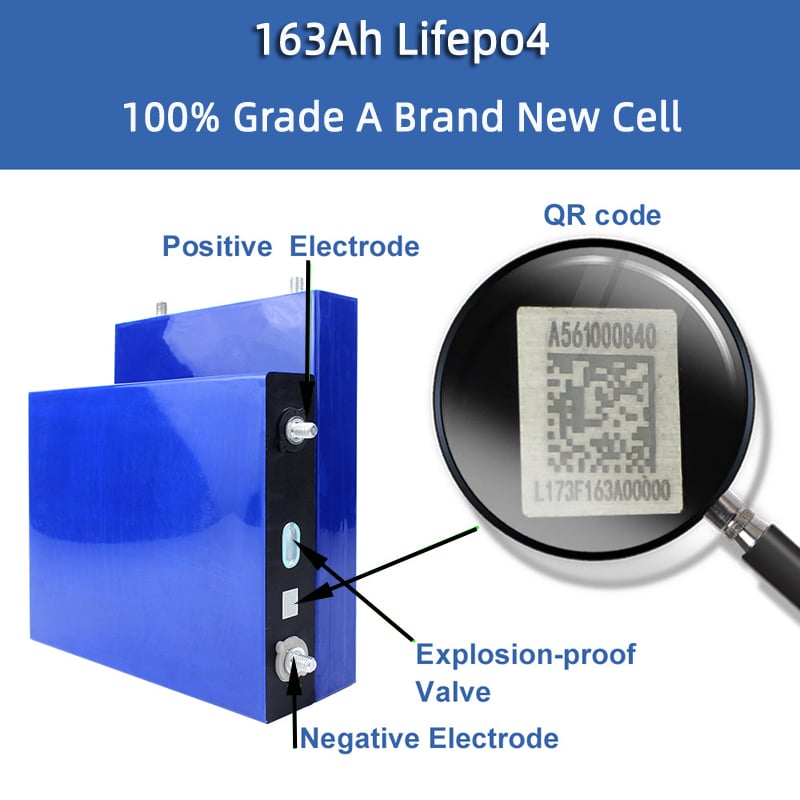 |
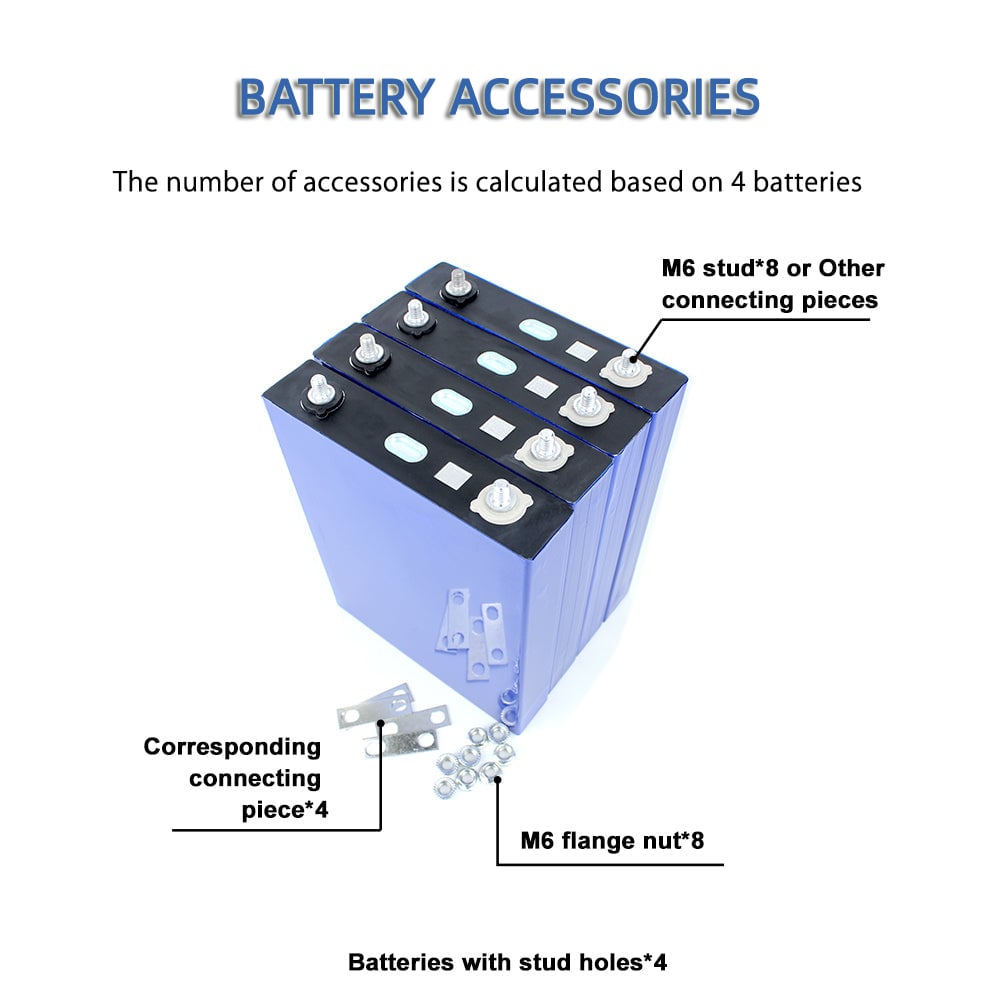 |
Technical Specifications and Features
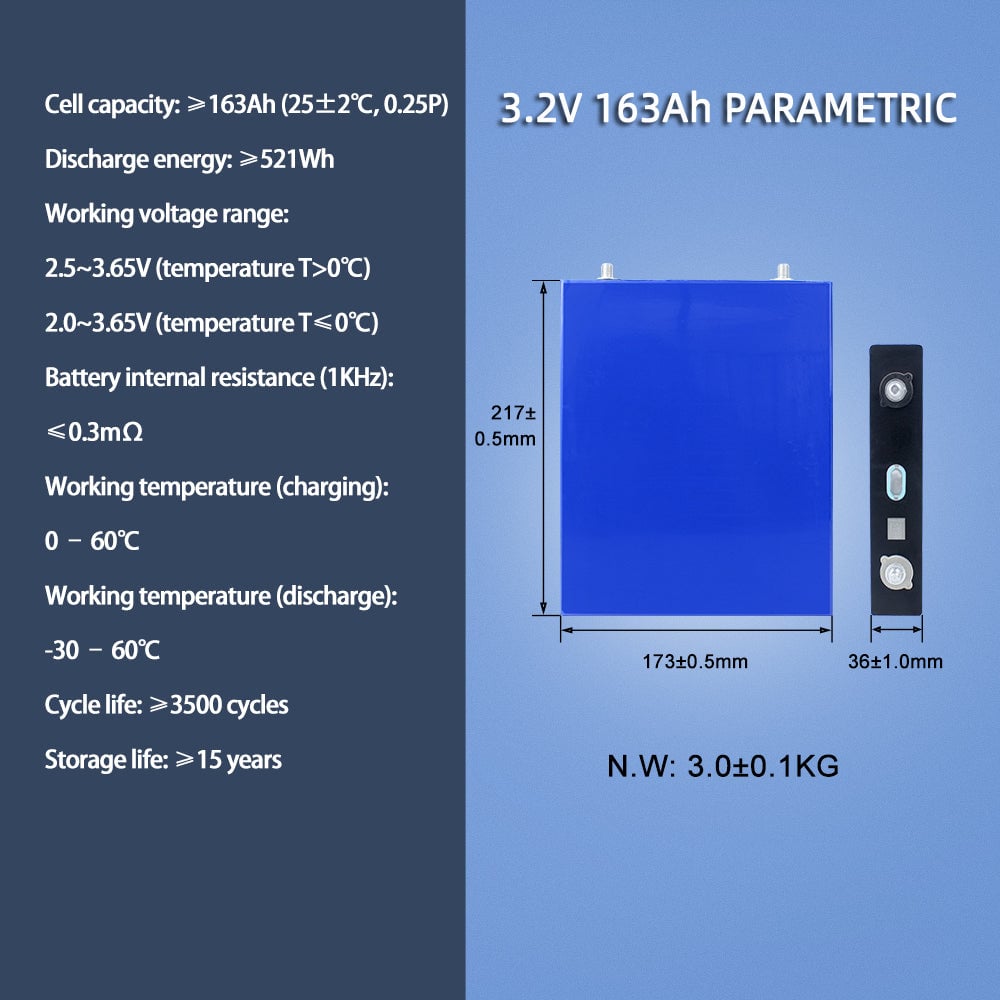
LiFePO4 (Lithium Iron Phosphate) is a type of lithium-ion battery that has been gaining popularity in recent years due to its high energy density, long cycle life, and safety features. The 3.2V 163Ah LiFePO4 Deep Cycle Cell is a high-capacity battery that is designed specifically for deep cycle use, making it ideal for solar energy storage applications. It has a nominal voltage of 3.2V and a capacity of 163Ah, which means it can provide a energy output of 521Wh and above. In addition, it has a cycle life of over 3500 cycles, which means it can be charged and discharged up to 3500 times before the capacity drops to 80% of its original value.
The physical dimensions of the cell are 173±0.5mm x 36±1mm x 217±0.5mm, and it weighs only 3±0.1kg, which makes it lightweight and easy to handle. The form factor of the cell is also very convenient for DIY solar energy storage battery packs, as it can be easily configured in various voltages, such as 12V, 24V, 36V, 48V, and 51.2V, depending on the specific requirements of the system.
Safety features are also an essential aspect of any battery system, and the 3.2V 163Ah LiFePO4 Deep Cycle Cell has several safety features that make it a reliable and safe option. It has a built-in battery management system that protects the battery from overcharging, over-discharging, and short-circuiting. It is also UL listed and meets several international safety standards, such as IEC 62133, UN 38.3, and RoHS.
Thermal stability is another critical factor for battery performance, and LiFePO4 batteries are known for their excellent thermal stability. They have a lower risk of thermal runaway and can operate in a wide range of temperatures without significant degradation in performance. This makes them an ideal choice for solar energy storage applications, where temperature fluctuations can be significant.
Applications and Benefits

The 3.2V 163Ah LiFePO4 Deep Cycle Cell has several benefits over other battery chemistries such as lead-acid and lithium-ion. One of the main benefits is its high energy density, which means it can store more energy in a smaller space, making it ideal for compact solar energy storage systems. It is also much lighter than lead-acid batteries, making it easier to handle and transport. Another benefit is its long cycle life, which means it can last much longer than lead-acid batteries and provide a more sustainable and cost-effective solution.
In addition, LiFePO4 batteries have a much lower risk of thermal runaway, which makes them a safer option for solar energy storage applications. They also have a much lower self-discharge rate, which means they can retain their charge for much longer periods without needing to be recharged.
The 3.2V 163Ah LiFePO4 Deep Cycle Cell can be used in a variety of applications, such as off-grid solar power systems, residential and commercial solar energy storage systems, and electric vehicle powertrains. Also it can be applied to these areas such as UPS, golf carts, motorcycles, e-bikes, yachts, solar power, wind power, RVs, ice fishing, fishing boats, forklifts, motorized wheelchairs, and home storage systems. Its ability to be configured in various voltages makes it a versatile option for DIY solar energy storage battery packs, as it can be tailored to meet the specific needs of the system.
Compared to other battery chemistries, LiFePO4 batteries are also much more environmentally friendly. They do not contain toxic metals such as lead and cadmium, and their production and disposal have much less impact on the environment. This makes them a sustainable and responsible choice for those looking to reduce their carbon footprint.
Conclusion
The 3.2V 163Ah LiFePO4 Deep Cycle Cell is a game-changer for DIY solar energy storage battery packs. Its high capacity, long cycle life, safety features, and thermal stability make it an ideal choice for solar energy storage applications. It is also a more sustainable and environmentally friendly option than other battery chemistries, making it a responsible choice for those looking to reduce their carbon footprint. With its versatility and benefits, the 3.2V 163Ah LiFePO4 Deep Cycle Cell is a reliable and efficient solution for DIY solar energy storage battery packs.
